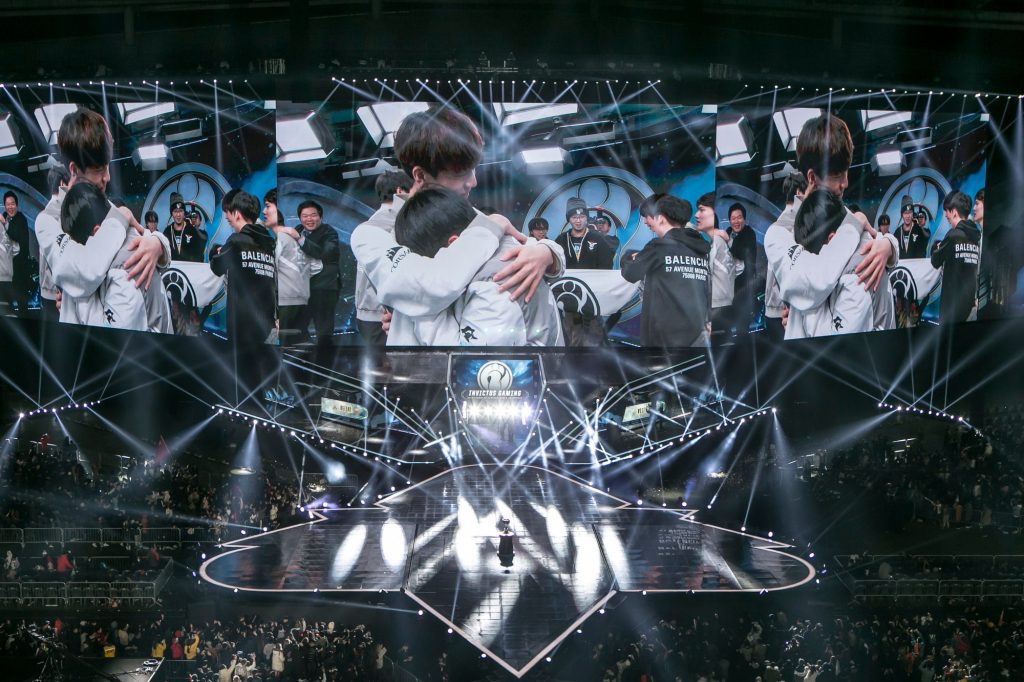Skift Take
How organizations and events build communities is shifting with new digital networks and the evolution of how people interact online. The culture and growth of esports represents a window into how these changes will affect associations, businesses, and the event sector at large.
No matter how boring and trite you may find the concept of esports competition and culture, the hobby is on the forefront of a major shift in the habits of how we consume media and interact in online communities.
The event industry needs to adapt to the reality of how a new generation of attendees demand engagement through a variety of online platforms.
Fortnite, a video game wherein cartoon characters blast each other with weapons and dance around, captured the imagination and dollars of the world in 2018. For the extremely online millennial and Gen Z generations, the game’s free online battle royal mode represents something more than just a colorful time-waster. Since everyone is online all the time, the game acts as a platform for engagement on multiple levels.
Friends play and chat over the internet with each other each night, earn almost random rewards that incentivize them to keep playing, closely track the news regarding updates and exploits on websites and message boards. They do this while watching tournaments and streams populated by players who routinely dedicate 10 hours a day to mastery of the game’s competitive systems. Kids may be dancing the stupid dances from the game, but plenty of adults have embraced this style of engagement with Fortnite as a platform.
It’s no surprise that the multifaceted elements of the online gaming ecosystem are starting to bleed into the world of big business; Fortnite publisher Epic Games routinely holds online tournaments with a million dollar prize, and fans flock to real-life stadium events featuring the best in the world at other games.
As Skift has reflected consistently over the years, shifts in the behavior of travelers and consumers begin in their personal lives; their expectations shift as their habits do, leaving organizations to often play catch up as old paradigms become ineffective.
Building Community
Social networking has undergone a reckoning as of late.
Facebook has become a cesspool of racism and misleading clickbait, while LinkedIn is rapidly becoming Facebook for people who wear suits. Twitter is chaotic and dense, making it hard to identify and join communities. Instagram is style over substance, rewarding a motif that everyone is trying to ape for increased engagement at the cost of true value to users.
As the battle over online privacy has heated up, new players have slowly entered the social networking arena.
Slack, a messaging app for the workplace, has picked up casual social users for communities based on certain topics while Discord, an online voice and text chat service, has slowly risen to prominence as a successor to old-school IRC (Internet Real Chat) of yore. As Instagram expands the ability of organizations to sell tickets to events, also expect the platform to introduce group and community interaction capabilities and management tools for organizers.
The truth is that the explosion in online communities spurred by esports has serious ramifications for the traditional events sector, particularly business events and conventions. Keeping association members engaged and educated is a complex issue, particularly in the always-on digital world. How do you keep members engaged and satisfied in a world defined by digital distraction?
Engagement is going to be limited even if you offer an app for your association, group, or event; people want to be reached where they spend most of their time, which will increasingly be in apps like Slack that provide the ability for hundreds of contributors to chat, send files, and more. The conversation is persistent and doesn’t disappear after an event ends. Chatting with organizers and direct messaging between attendees has been common for event apps for a few years, but lacks the ability to facilitate communication, education, and bonding over the full event lifecycle.
Dedicated message boards or LinkedIn or Facebook groups lack the immediacy of live chat, particularly for those looking for timely information or advice. Why wait until your chapter meeting to pose a question? There is no replacement for real-life meetings and the face-to-face connections they create, but digital platforms can help enhance the overall event experience the rest of the time.
So often, organizers encourage attendees to post on Twitter or Facebook from an event. Sure, it looks good for the organization’s marketers that people are tweeting, but does it provide any lasting value to attendees or the organization’s health?
Building an engaged community is more valuable than things like Twitter chat or webinars, even if it can’t be seen by the outside world as a visible marketing success. In particular, it offers increased value to those who may not be able to attend a real-life event for whatever reason, and those new to a group or sector who may lack the connections to feel comfortable at an event.
Live chat that persists beyond the timeline of a physical event is more valuable, a living and searchable testament to the strength and power of an association or community. With digital communication and content more effectively threaded throughout a physical experience, so too will the overall event experience become more cohesive and powerful for attendees. If stronger digital personalization really ever comes to meetings, digital platforms will be intermediating the experience anyway.
This will help thread the offline event experience with a persistent, always-on digital community that younger professionals operate within. It’s not enough to be relevant once or four times a year; groups need to provide constant value and brain food to members, wherever they are.
Have a confidential tip for Skift? Get in touch
Tags: engagement, esports, meetings, meetingsiq, social media
Photo credit: The rise of esports and the ways that people communicate online have profound implications for the traditional events sector. This photo features competitors during an esports competition. Bloomberg
